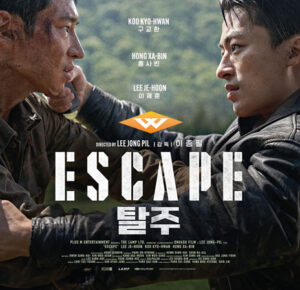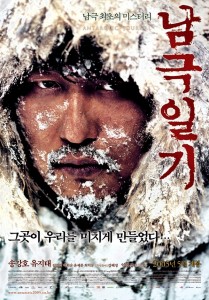AKA: 7 Soldiers of Kung Fu, 108 Heroes
Director: Chang Cheh, Wu Ma
Producer: Sir Run Run Shaw
Cast: David Chiang, Ti Lung, Chen Kuan Tai, Danny Lee, Michael Chan, Betty Chung, Guk Fung (Yu Feng), Lily Ho, Yueh Hua, Tetsuro Tamba (Tetsuro Tanba), Bolo Yeung, Wong Chung, Chan Sing
Running Time: 101 min.
By Joe909
There is more epic-scale action in the first ten minutes of All Men Are Brothers than there is in the entire running time of its predecessor, The Water Margin. Events seem to pick up right after those shown in the Water Margin, but it’s not in the least necessary to see that movie before watching this one. In fact, All Men gets started with a recap of several things that didn’t even happen in the Water Margin, as several battles are waged between the 108 Outlaws of the Marsh and the rebels they’re against.
This opening act flows along rapidly, with an onscreen legend (in Chinese and English) giving you the background of the events about to be seen. It’s humorous that these legends also tell you how these events are going to end, too. Anyway, here we see lots of cool battle scenes as members of the Marsh army decimate their foes in large battles, sacrificing themselves for the cause. Best part of all: one of the Outlaw leaders is portrayed by the same guy who played the ninja leader in Five Element Ninja! I love that guy!
After this bloody opening, things get started with a meeting of the leaders of the Marsh. It’s decided that rebel leader Fang La is the greatest threat to the Emperor, so a force is sent to destroy his stronghold city of Yongjinmen. The city however is well-guarded, with high walls and even water fortifications. This is the part where the movie shows the limits of its budget, though. Where the Water Margin merely hinted at naval warfare, All Men shows an armada assault on Yongjinmen, and it isn’t pretty. Only a handful of boats are shown, and they’re waylaid by a half-assed gate of wire-laced logs. The naval force is wasted, with only one guy escaping to tell the tale.
The Marsh leaders then send a few heroes into the city alone, to figure out a way to break down the defenses so the Outlaw army can get in, by land and by sea. This successfully whittles down the unwieldy cast list, and we’re given only a few heroes to root for, which makes the movie much more accessible than its predecessor. David Chiang is of course one of these guys, some of the others being Chen Kuan-Tai, Wang Chung, and Danny Lee. Ti Lung unfortunately isn’t along for the trip, but shows up long enough for some heroic sacrifice at the very end.
The movie soon becomes a protracted cat-and-mouse scenario, with the Outlaws trying to evade being caught in Yongjinmen. Much like the Water Margin was an endless loop of guys getting captured, jailed, and then freed, All Men Are Brothers is an endless loop of the Outlaws being spotted by rebel soldiers, then making a lone, heroic stand against them. Imagine a movie comprised of several bloody set pieces similar to the finale of Boxer from Shantung, and you’ll get an idea of what All Men Are Brothers is like. Unlike the Water Margin, though, this endless loop of battles is entertaining, and doesn’t grate your nerves. Admitably however, the movie is mostly braindead in the story department.
One surprising aspect of the Water Margin was that all of the heroes survived. To say this was unusual for a Chang Cheh movie is an understatement. I have a feeling Chang woke up in the middle of the night after completing that film, sputtering “What in the hell have I done?” and promptly got to work on All Men Are Brothers, in which EVERYONE dies. The violence level is fantastic, with multiple dismemberings, hackings, and slicings. Chen Kuan-Tai gets the best scene in the entire film, using whatever he can get his hands on as a weapon, killing tons of guys. The Shaws red blood is everywhere throughout the length of the film. This is one of the most violent Shaw Brothers flicks for sure. Another name for the movie could have been “All Men Are Bloody.”
Like the Water Margin, the Celestial DVD release is near-perfection. I have read that it’s slightly edited, though. Apparently there were a few extra seconds of violence in the US print of the movie. In particular, I’ve read that there was a shot of David Chiang getting stabbed in the back (literally) during his final battle sequence. On the other hand, the US print was not in any way preferable; the US release of All Men Are Brothers reverted to black and white to obscure several of the more violent scenes. The Celestial release is in glorious color throughout.
Final word: if you want a blood-drenched classic, seek this out. The choreography isn’t Venoms-quality, but it’s better than the wrestling antics of the Water Margin. David Chiang comes off better in this one than the previous movie, and the tattoo-covered Chen Kuan-Tai is the highlight of the film. It’s like this: the Water Margin seemed like the work of some unknown director who was unsure of his footing. All Men Are Brothers is a Chang Cheh classic through and through. It’s only let down by the occasional misstep (the awkward naval battle, the utterly annoying Black Whirlwind, the fact that Fang La’s men only seem capable of chasing our heroes for a few feet before giving up), but it will entertain for sure.
Joe909’s Rating: 8.5/10
























1 Comment